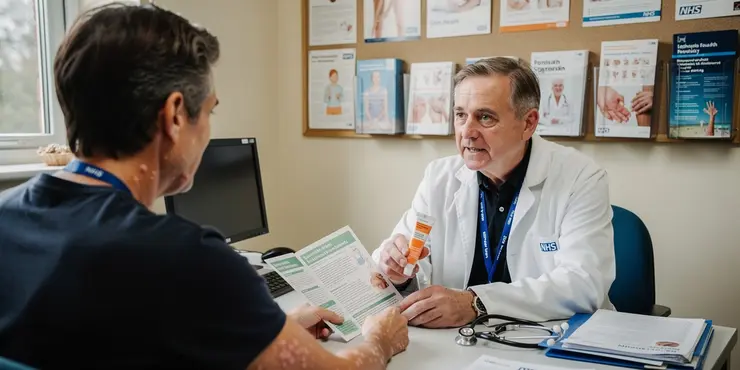
Find Help
More Items From Ergsy search
-
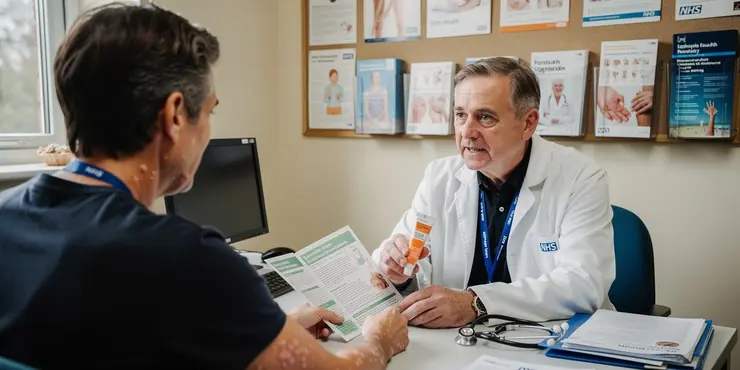
What are topical treatments for psoriasis?
Relevance: 100%
-
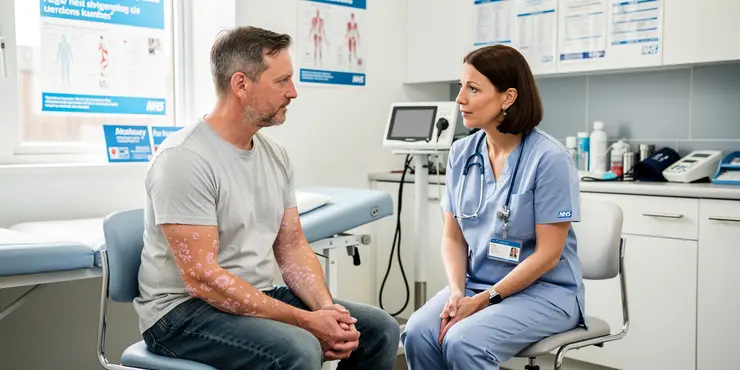
What treatment options are available for psoriasis?
Relevance: 72%
-
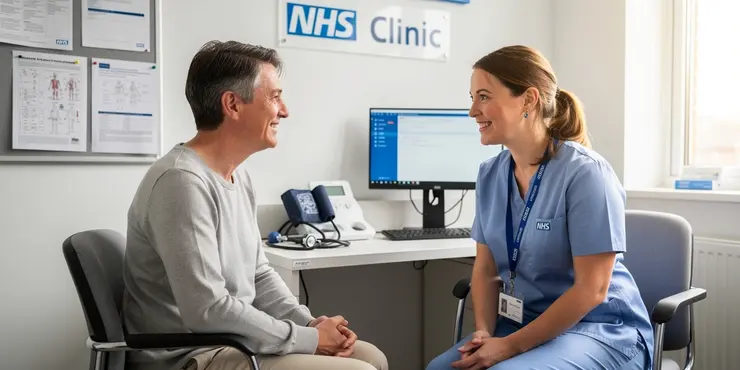
How to treat psoriasis
Relevance: 62%
-
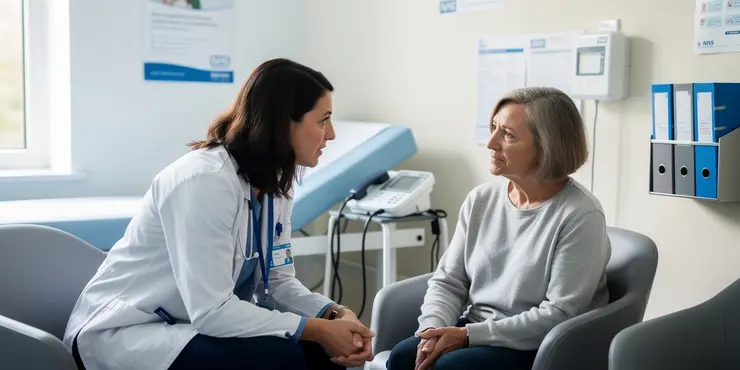
Psoriasis | NHS
Relevance: 60%
-
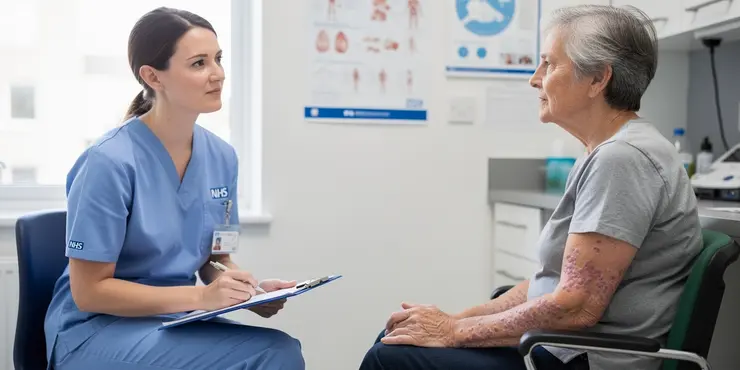
Is there a cure for psoriasis?
Relevance: 59%
-
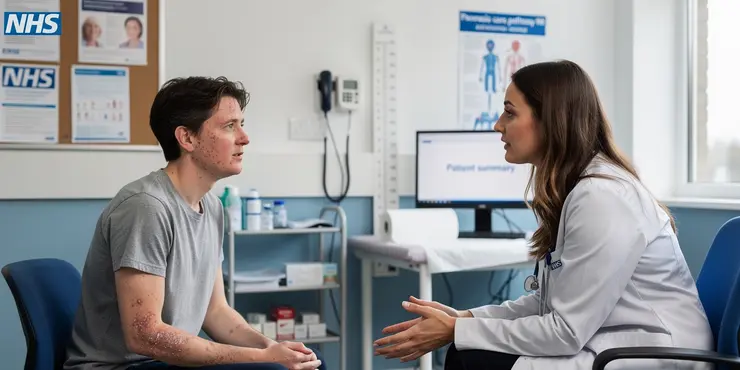
What is psoriasis?
Relevance: 59%
-

Treating scalp psoriasis
Relevance: 57%
-
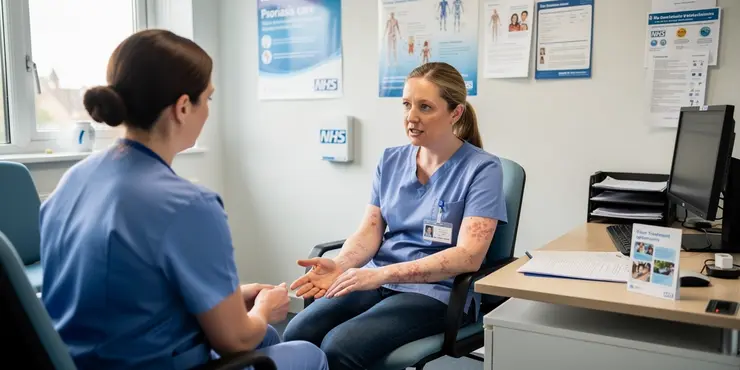
What are systemic medications for psoriasis?
Relevance: 55%
-

What causes psoriasis?
Relevance: 52%
-
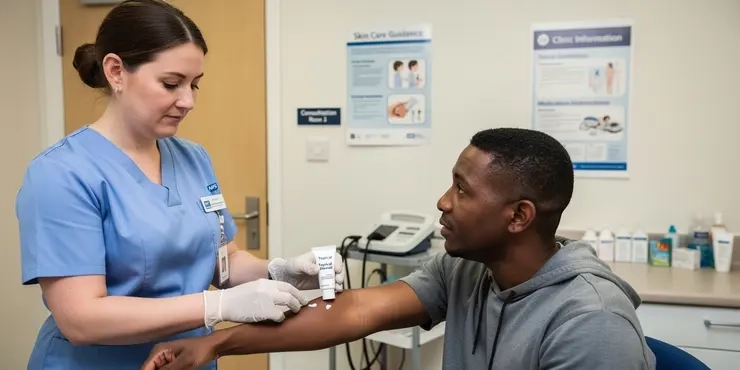
How to use topical steroids
Relevance: 50%
-
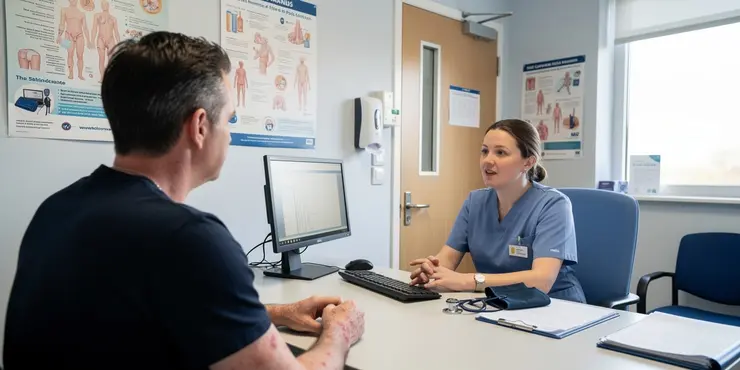
When should I see a doctor for psoriasis?
Relevance: 50%
-
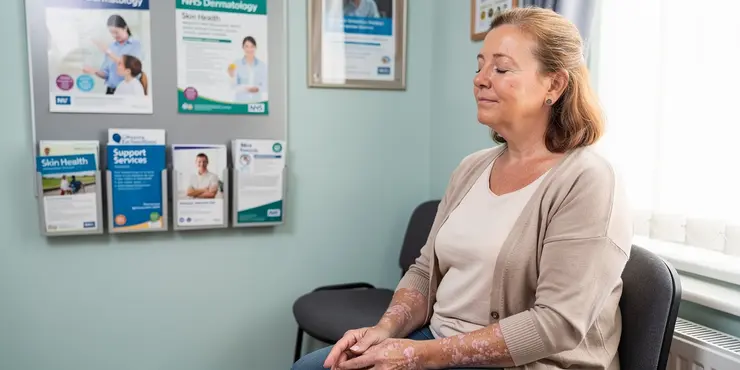
Can stress trigger psoriasis flare-ups?
Relevance: 50%
-
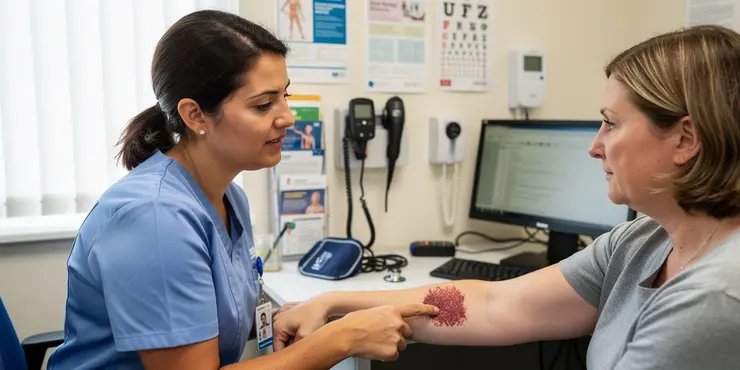
How is psoriasis diagnosed?
Relevance: 50%
-
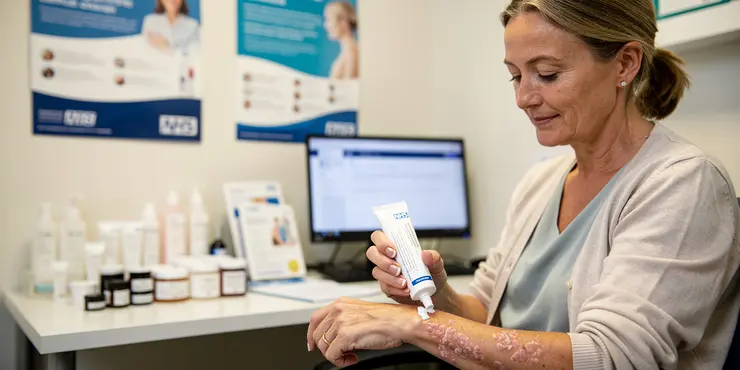
Can over-the-counter treatments help with psoriasis?
Relevance: 49%
-

Are there home remedies for psoriasis?
Relevance: 49%
-
Is it true that sunbeds can help treat skin conditions like psoriasis?
Relevance: 48%
-

Can diet affect psoriasis?
Relevance: 48%
-
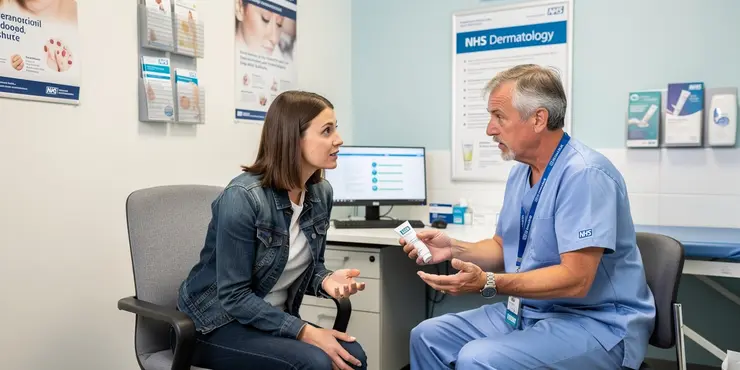
Steroid cream see Topical corticosteroids
Relevance: 48%
-
What role do lifestyle changes play in managing psoriasis?
Relevance: 46%
-

How are the topics for the HMRC Employer Bulletin chosen?
Relevance: 36%
-
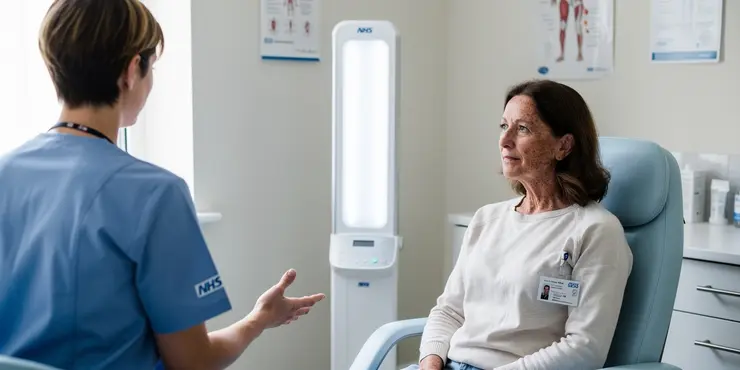
Can phototherapy help with psoriasis?
Relevance: 34%
-
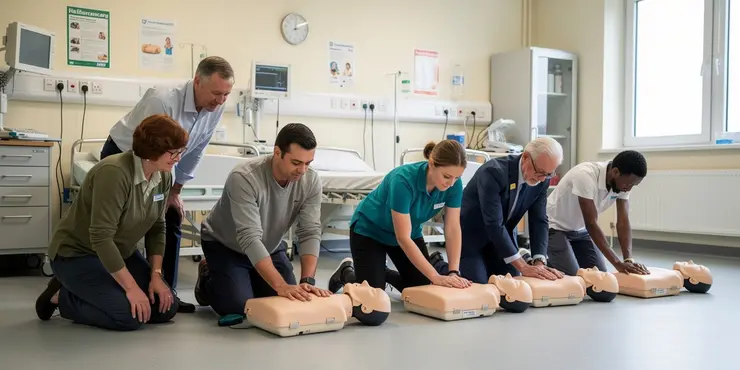
What topics are covered in a first aid course?
Relevance: 32%
-

How important is it to keep the skin moisturised with psoriasis?
Relevance: 31%
-
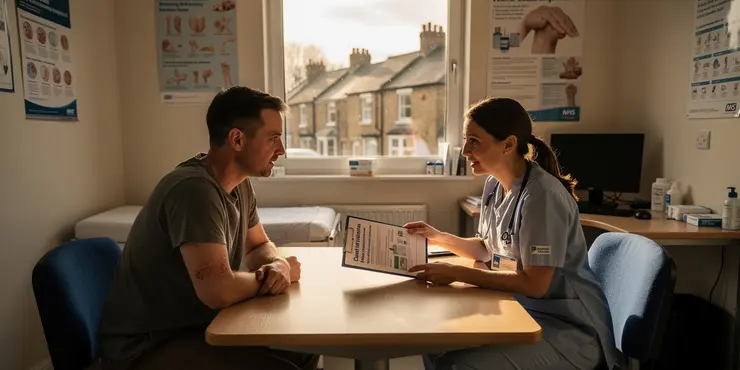
What treatments are available for eczema?
Relevance: 30%
-

What treatments are available for shingles?
Relevance: 26%
-
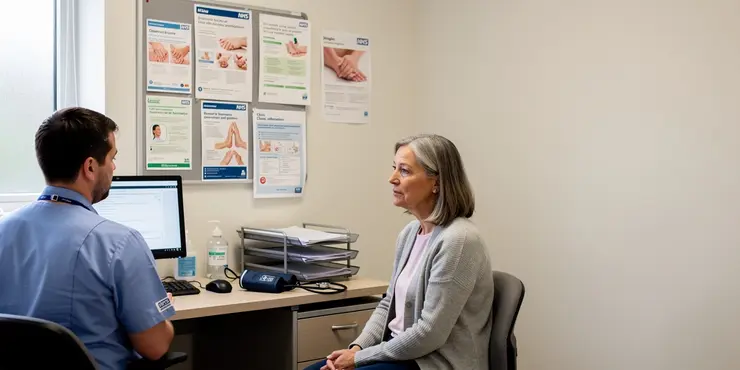
What treatments are available for shingles?
Relevance: 26%
-
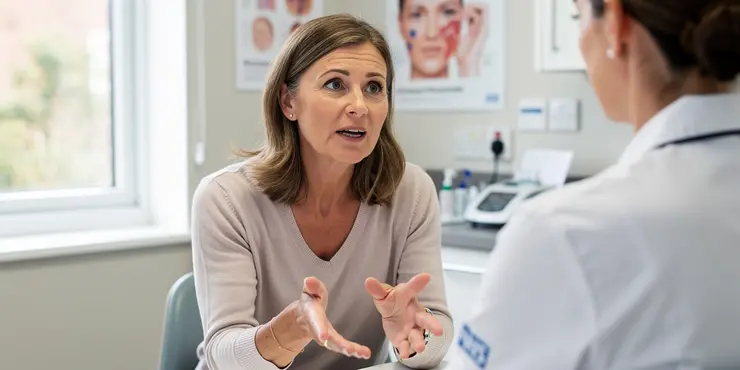
Can anyone get Botox treatments?
Relevance: 22%
-
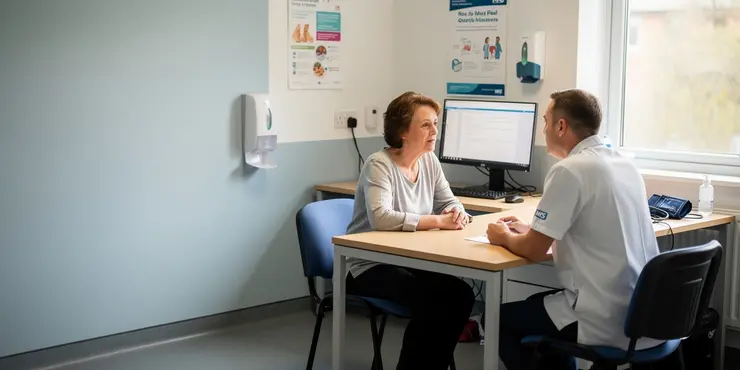
What topics does the HMRC Employer Bulletin cover?
Relevance: 22%
-
Are there any benefits to using sunbeds for acne treatment?
Relevance: 22%
-
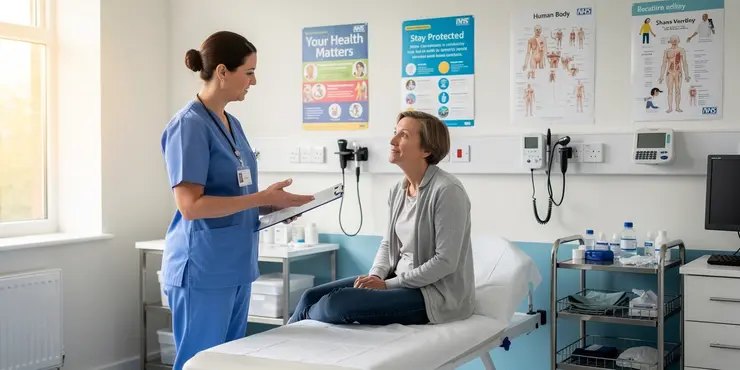
Is Paillon treatment FDA approved?
Relevance: 22%
-
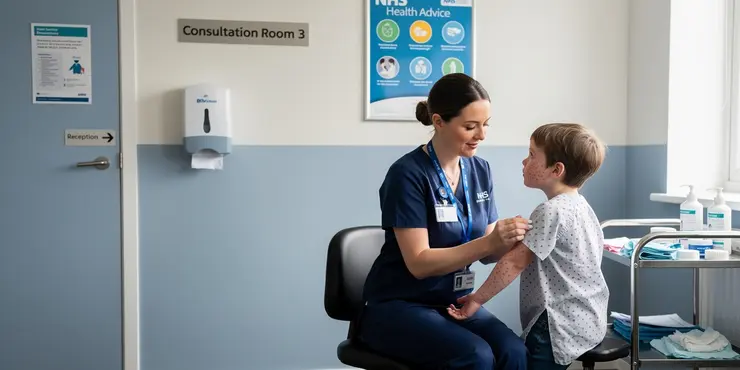
What is the treatment for chickenpox?
Relevance: 21%
-
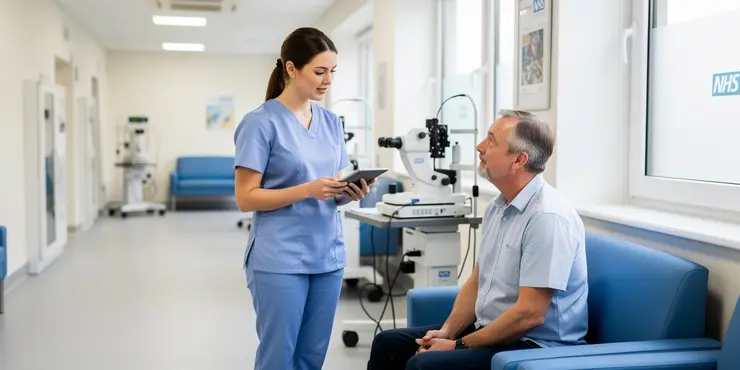
What treatments are available for hypotony?
Relevance: 21%
-

What are the success rates of Paillon treatment?
Relevance: 21%
-

What are the side effects of Paillon treatment?
Relevance: 20%
-

Having chemotherapy and other treatments in the Day Treatment Unit
Relevance: 19%
-
Is there a treatment for measles?
Relevance: 19%
-

Is there a treatment for measles?
Relevance: 19%
-
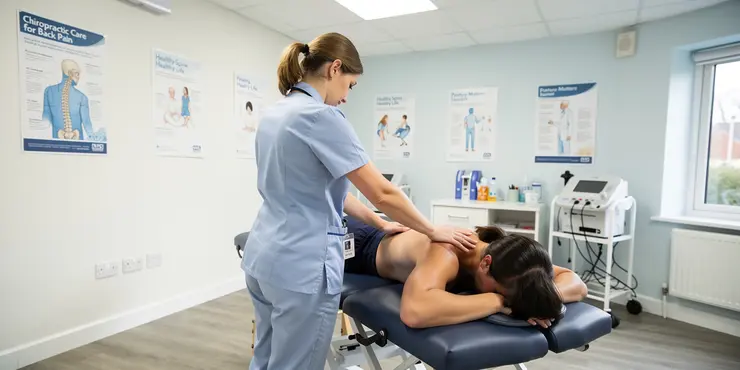
Are chiropractic treatments safe?
Relevance: 19%
-

Is Botox treatment expensive?
Relevance: 19%
-
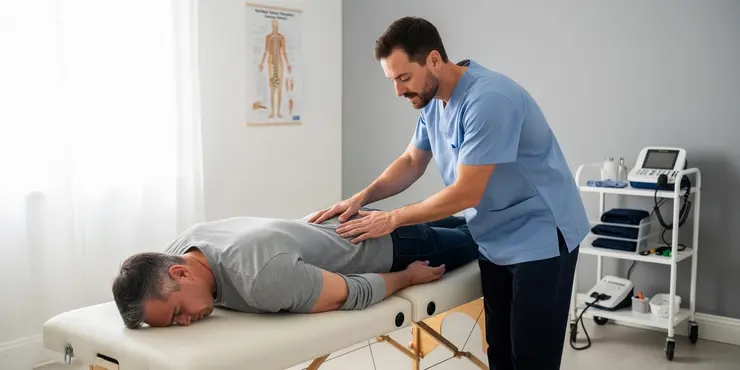
Are chiropractic treatments painful?
Relevance: 19%
Topical Treatments for Psoriasis
Psoriasis is a chronic autoimmune condition that causes the rapid growth of skin cells, leading to scaling, inflammation, and redness. In the UK, psoriasis affects around 2% of the population. While there is no cure for psoriasis, various treatments can help manage symptoms. Topical treatments, applied directly to the skin, are often the first line of therapy for mild to moderate psoriasis. They help reduce inflammation, slow down the growth of skin cells, and remove scales. Here we explore some of the topical treatments commonly used in the UK.
Corticosteroids
Topical corticosteroids are the most frequently prescribed topical treatment for psoriasis. These treatments work by reducing inflammation, itching, and the proliferation of skin cells. Corticosteroids come in various strengths, from mild to very strong. For delicate areas such as the face, mild corticosteroids like hydrocortisone are recommended, while more potent options like clobetasol propionate might be prescribed for thicker plaques on the elbows or knees. It is essential to use them under medical supervision, as long-term use can lead to side effects like skin thinning.
Vitamin D Analogues
Vitamin D analogues, such as calcipotriol and calcitriol, are synthetic forms of vitamin D used in psoriasis treatment. They help to regulate skin cell production and reduce inflammation. Vitamin D analogues can be used alone or in combination with corticosteroids to enhance their effectiveness. They are typically well-tolerated and can be a suitable option for long-term management.
Coal Tar
Coal tar has been used for over a century as a treatment for psoriasis. It is available in different formulations, including creams, lotions, and shampoos. Coal tar helps slow down the excessive growth of skin cells and reduces itching. It can be particularly effective for scalp psoriasis. However, its strong smell and potential to stain clothing might be off-putting for some individuals.
Retinoids
Topical retinoids, derived from vitamin A, such as tazarotene, are used to treat psoriasis by reducing inflammation and slowing down cell proliferation. Retinoids can be effective but may cause skin irritation and sensitivity to sunlight. It is advisable to apply them in the evening and use sunscreen during the day. Pregnant women should avoid retinoids due to the risk of birth defects.
Emollients and Moisturisers
While not a treatment that targets psoriasis specifically, emollients and moisturisers play a critical role in managing the condition. They help keep the skin soft and hydrated, reducing dryness, scaling, and itchiness. Regular use of moisturisers can enhance the effectiveness of other topical treatments.
Conclusion
Topical treatments are an essential component in managing psoriasis, particularly for mild to moderate cases. They offer a variety of options with different mechanisms of action. It is important for patients in the UK to work closely with healthcare professionals to determine the most appropriate treatment based on the severity and location of their psoriasis, as well as their lifestyle preferences.
Topical Treatments for Psoriasis
Psoriasis is a skin problem that makes skin cells grow too fast. This causes scales, redness, and sore skin. In the UK, it affects about 2 out of every 100 people. Psoriasis cannot be cured, but treatments help make it better. Topical treatments are creams or ointments put directly on skin. They are often the first treatment for mild to moderate psoriasis. These treatments help heal the skin and stop too many skin cells from growing. Let’s look at some common treatments used in the UK.
Corticosteroids
Topical corticosteroids are the most common creams for psoriasis. They help with swelling, itching, and too many skin cells. Corticosteroids come in different strengths, from mild to strong. For sensitive areas like the face, a mild cream called hydrocortisone is used. Stronger creams like clobetasol propionate are used on thicker skin patches, like on elbows or knees. Always use these creams with a doctor’s help, as using them too long may harm the skin.
Vitamin D Analogues
Vitamin D analogues are man-made vitamin D creams like calcipotriol and calcitriol. They help control skin cell growth and reduce redness. These creams can be used alone or with corticosteroids for better results. They are usually safe and good for long-term use.
Coal Tar
Coal tar has been used for over 100 years to treat psoriasis. It comes in creams, lotions, and shampoos. Coal tar helps slow down skin cell growth and stops itching. It is especially helpful for scalp problems. But, some people do not like its strong smell and the way it can stain clothes.
Retinoids
Retinoids come from vitamin A and include creams like tazarotene. They help by reducing redness and slowing skin cell growth. Retinoids can be very helpful but might make the skin sensitive and irritated. Use them at night and put on sunscreen during the day. Pregnant women should not use retinoids because they can harm the baby.
Emollients and Moisturisers
Emollients and moisturisers are not direct treatments for psoriasis, but they are important. They keep skin soft and moist, which helps reduce dryness, scales, and itching. Using moisturisers often makes other treatments work better.
Conclusion
Creams and ointments are important for treating psoriasis, especially when it’s mild to moderate. There are many kinds to choose from, each with a different way of working. People in the UK should talk to their doctors to find the best treatment for them. It depends on how bad their psoriasis is, where it is on the body, and what treatments they like to use.
Frequently Asked Questions
What are topical treatments for psoriasis?
Topical treatments for psoriasis are medications applied to the skin to help manage and reduce symptoms.
What is the most common topical treatment for psoriasis?
Corticosteroids are the most commonly prescribed topical treatment for psoriasis.
How do corticosteroids help in treating psoriasis?
Corticosteroids reduce inflammation and slow down the overproduction of skin cells in psoriasis patients.
What are some other topical treatments besides corticosteroids?
Besides corticosteroids, other topical treatments include vitamin D analogs, coal tar, salicylic acid, and calcineurin inhibitors.
How do vitamin D analogs work in treating psoriasis?
Vitamin D analogs help slow the growth of skin cells and reduce scaling and inflammation.
What is the role of coal tar in psoriasis treatment?
Coal tar helps to reduce scaling, itching, and inflammation associated with psoriasis.
How does salicylic acid help manage psoriasis?
Salicylic acid helps to soften and remove scales and reduce the thickness of psoriasis plaques.
What are calcineurin inhibitors, and how do they help with psoriasis?
Calcineurin inhibitors, such as tacrolimus and pimecrolimus, reduce inflammation and plaque formation without causing skin thinning.
Are there any non-steroidal topical treatments for psoriasis?
Yes, non-steroidal treatments include vitamin D analogs, calcineurin inhibitors, and coal tar.
How often should topical treatments be applied?
The frequency of application depends on the specific treatment and physician recommendations, but most are applied once or twice daily.
Can I use topical treatments in conjunction with other therapies?
Yes, topical treatments can be used alongside systemic treatments or phototherapy, but it's best to consult with a healthcare provider.
Are there any side effects associated with topical treatments for psoriasis?
Side effects can include skin thinning (with prolonged steroid use), irritation, and allergic reactions.
Are natural or herbal remedies effective as topical treatments for psoriasis?
Some natural remedies, like aloe vera and tea tree oil, may provide relief, but their effectiveness varies and they should complement other treatments.
What is the benefit of using moisturizers for psoriasis?
Moisturizers can help prevent dryness, reduce itchiness, and improve the appearance of the skin.
Can coal tar treatments be used on any part of the body?
Coal tar can be applied to most body areas but should be used with caution and avoided on sensitive areas like the face and genitals.
Do I need a prescription for all topical psoriasis treatments?
Some treatments, like strong corticosteroids or calcineurin inhibitors, require a prescription, while others like coal tar and salicylic acid products may be available over the counter.
How long does it take to see results from topical treatments?
Results can vary, but many people see improvement within a few weeks of consistent use.
Can children use topical treatments for psoriasis?
Many topical treatments can be used by children, but it's important to consult a healthcare provider to ensure safety and appropriate dosing.
Is it safe to use topical treatments during pregnancy?
Pregnant women should consult with their healthcare provider before using any topical treatments for psoriasis to ensure safety.
How should I choose the best topical treatment for my psoriasis?
Choosing the best treatment depends on the type and severity of your psoriasis, as well as your response to past treatments, and should be guided by a healthcare provider.
What creams or lotions can help with psoriasis?
Psoriasis is a skin problem that makes your skin red and scaly.
There are creams and lotions that can help make your skin feel better.
Here are some things that might help:
- Moisturizers: These make your skin less dry.
- Steroid creams: These help with redness and swelling.
- Vitamin D creams: These can slow down skin growth.
It's good to ask a doctor or nurse for advice. They can tell you what might work best.
Using these creams often and as told can really help your skin.
Psoriasis creams and ointments go on your skin. They help make the symptoms better.
What cream or lotion is used most for psoriasis?
Psoriasis is a skin problem. It makes your skin red and flaky. People use creams or lotions on their skin to help. These are called "topical treatments." They go on the skin where it's red and flaky.
A very common cream used for psoriasis is called "steroid cream." This cream helps to calm the skin and reduce redness and swelling.
To make it easier to use creams, ask a doctor or nurse for help. You can also look at pictures or videos to show you how to put it on.
Using a chart can help you remember to use the cream every day. A family member or friend can also help you.
Corticosteroids are special creams that doctors give people to put on their skin to help treat psoriasis.
How do corticosteroids help with psoriasis?
Corticosteroids are special medicines.
They help make the red, itchy skin better.
If you use them, the skin can be less sore and less red.
Here are some ways to feel better with psoriasis:
- Ask a doctor or nurse about using corticosteroids.
- Put on cream or lotion as told by the doctor.
- Use gentle, soft clothes to be kind to your skin.
- Stay away from things that make your skin worse.
- Talk to someone if you feel upset about your skin.
These steps can help your skin feel better.
Corticosteroids help make the swelling go down and make the skin cells grow slower for people with psoriasis.
What other skin creams can we use besides corticosteroids?
There are other skin creams that can help. These include creams with vitamin D, coal tar, salicylic acid, and calcineurin inhibitors.
If you're finding it hard to read, you can use tools to help. Audiobooks or text-to-speech apps can read texts out loud to you. Remember, it’s okay to ask for help when you need it.
How do vitamin D medicines help with psoriasis?
Psoriasis is a skin problem. It makes the skin red, sore, and scaly.
Vitamin D medicines can help make the skin better. They are special types of vitamin D.
- They help stop the skin from growing too fast.
- This makes the skin less red and scaly.
- They can make the skin feel less sore.
If you find reading tough, try these ideas:
- Ask someone to read with you.
- Use a ruler to keep your place.
- Listen to the text if there's an audio option.
Vitamin D medicines help slow down the growth of skin cells. They also help with flaky skin and swelling.
How does coal tar help treat psoriasis?
Coal tar is a special medicine that helps the skin. It can make red, itchy patches from psoriasis feel better. It helps stop the skin from growing too fast and can make the skin smoother.
Here are some ways coal tar can help:
- It makes the skin less itchy.
- It helps the skin heal.
- It makes the skin less red.
You can use coal tar in shampoos, creams, or lotions. It’s important to talk to a doctor before using it. They can help you find what’s best for you.
For help reading, you can ask someone to read it with you or use a tool that reads text out loud.
Coal tar can help your skin. It stops your skin from being itchy and helps with swelling and dry patches. This is good for people who have a skin problem called psoriasis.
How does salicylic acid help with psoriasis?
Salicylic acid is a special medicine. It can help people with psoriasis. Psoriasis is a skin problem that makes red, itchy patches.
Here is how it works:
- Salicylic acid can help take away the dry, thick patches on the skin.
- It makes the skin softer and smoother.
- It helps new, healthy skin grow.
Some people find it helpful to use special creams with salicylic acid.
If you have psoriasis, talk to a doctor or a skin expert. They can help you find the right treatment. You might also use a calendar to remind you to use your medicine every day. This can help make your skin feel better.
Salicylic acid makes skin soft. It helps to take away flakes and makes thick skin patches from psoriasis smaller.
What are calcineurin inhibitors, and how do they help with psoriasis?
Calcineurin inhibitors are special medicines. They help with skin problems like psoriasis. Psoriasis makes your skin red and itchy. These medicines make the skin less red and itchy.
If you have trouble reading, here are some tips that might help:
- Listen to the text: Use a tool that reads the text out loud.
- Point to the words: Use your finger or a ruler to keep your place when reading.
- Ask someone: Have a friend or teacher explain it to you.
Calcineurin inhibitors are medicines. Some examples are tacrolimus and pimecrolimus. They help make the skin less red and sore. They also help stop rough patches. These medicines do not make your skin thin.
Are there any skin creams for psoriasis that don't have steroids?
Psoriasis is a skin problem. It makes red, scaly patches on the skin. Some creams for psoriasis have steroids. These help with swelling and redness.
But there are also creams without steroids that can help. They are called non-steroidal treatments. You can ask a doctor or a pharmacist about these creams.
Here is how you can find out more:
- Talk to your doctor. They can tell you which creams might work for you.
- Visit a pharmacy. Pharmacists can help you find creams that are safe to use.
- Use the internet. Look for trusted websites that have information on psoriasis creams.
Always ask an adult to help you when using new creams on your skin.
Yes, there are treatments that do not use steroids. These include:
- Vitamin D cream
- Special creams called calcineurin inhibitors
- Coal tar lotion or cream
How many times should you use creams or gels?
It is important to follow the doctor's advice. Ask a parent or friend to help. You might need to put on creams or gels once or twice a day. Use pictures or reminders to help you remember.
How often you use the treatment depends on what your doctor says. Usually, you use it one or two times each day.
Can I use skin creams with other treatments?
Yes, you can use creams or lotions with other treatments like light therapy. It's a good idea to talk to a doctor first.
Do skin creams for psoriasis have any side effects?
Psoriasis can make your skin red, dry, and itchy. Sometimes people use creams to help their skin. These creams are called topical treatments.
Some creams might cause problems, like making your skin feel different. If your skin gets sore, red, or feels funny after using a cream, you should stop using it and tell a grown-up or a doctor.
Here are some tips to help:
- Ask a doctor before you try new creams.
- Try using a little bit first to see if it is okay for your skin.
- Use a special reminder to help you remember to put on your cream every day.
Some side effects might happen if you use steroids for a long time. Your skin might get thinner, it could get irritated, or you might have an allergic reaction.
Do natural or plant medicines help with psoriasis skin problems?
Psoriasis is a skin problem that makes skin red and flaky. Some people want to know if they can use natural or plant medicines on the skin to help.
If you have psoriasis, you can ask the doctor. They can tell you what is safe and works well.
Some natural things, like aloe vera and tea tree oil, can help you feel better. But they work differently for everyone and should be used with other treatments too.
Why is using moisturizer good for psoriasis?
Moisturizer helps skin stay soft and less itchy.
It stops skin from getting dry and makes it feel better.
Try putting on moisturizer every day.
Ask an adult if you need help picking a good moisturizer.
Moisturizers are creams or lotions. They stop your skin from getting dry. They can help stop itching. They make your skin look nice.
Can you use coal tar on any part of your body?
You can use coal tar on some parts of your body, but not everywhere. It helps with itchy or flaky skin. Be careful where you use it.
These tips can help:
- Ask your doctor or nurse if it's safe to use.
- Try on a small area of skin first to see if it feels okay.
- Don't put it on cuts or sores.
You can use coal tar on most parts of the body. But be very careful, and do not use it on the face or private parts.
Do you need a doctor's note for all skin creams for psoriasis?
Some treatments need a doctor's note, like strong medicine called corticosteroids or calcineurin inhibitors. Other treatments, like coal tar and salicylic acid, can be bought at the store without a doctor's note.
When will I see results from using skin creams?
If you put cream on your skin, it might take some time to see changes. It could be a few days or weeks.
Here are some tips:
- Be patient and keep using the cream every day.
- If you don’t see changes after a few weeks, ask a doctor or nurse for help.
- Use a timer or a calendar to help you remember to use the cream.
Results can be different for everyone. But most people get better in a few weeks if they use it regularly.
Can kids use skin creams for psoriasis?
Kids with psoriasis might use special creams and lotions. These help to make their skin feel better.
If you want to know if your child can use these creams, talk to a doctor or nurse.
Some tips to help:
- Ask the doctor many questions.
- Read about the cream before you use it.
- Use the cream just like the doctor says.
Tools to help:
- Use a pictogram or simple chart to show when to use the cream.
- Use a reminder on your phone to remember the time to apply the cream.
Kids can use many skin creams and treatments. But it is important to talk to a doctor first. This helps make sure it is safe and that you use the right amount.
Here are some tips to help:
- Ask a doctor before using any new cream.
- Follow any instructions on the bottle.
- If your child feels itchy or has a rash, stop using the cream and call a doctor.
Can I use creams and lotions when I am pregnant?
It is important to be careful with what you put on your skin when you are pregnant. Some creams and lotions might not be safe for your baby.
Ask your doctor or nurse before using any creams or lotions on your body. They can tell you what is safe.
You can also use online tools to look up products. Look for information from trusted health websites.
If you are pregnant, talk to your doctor before using any creams or medicines on your skin for psoriasis. This is to make sure it is safe for you and your baby.
How can I pick the best cream for my psoriasis?
Picking the right treatment for psoriasis depends on what type you have and how bad it is. It also matters how other treatments have worked for you before. A doctor can help you decide what’s best.
Useful Links
This website offers general information and is not a substitute for professional advice.
Always seek guidance from qualified professionals.
If you have any medical concerns or need urgent help, contact a healthcare professional or emergency services immediately.
Some of this content was generated with AI assistance. We’ve done our best to keep it accurate, helpful, and human-friendly.
- Ergsy carfully checks the information in the videos we provide here.
- Videos shown by Youtube after a video has completed, have NOT been reviewed by ERGSY.
- To view, click the arrow in centre of video.
- Most of the videos you find here will have subtitles and/or closed captions available.
- You may need to turn these on, and choose your preferred language.
- Go to the video you'd like to watch.
- If closed captions (CC) are available, settings will be visible on the bottom right of the video player.
- To turn on Captions, click settings .
- To turn off Captions, click settings again.
More Items From Ergsy search
-

What are topical treatments for psoriasis?
Relevance: 100%
-

What treatment options are available for psoriasis?
Relevance: 72%
-

How to treat psoriasis
Relevance: 62%
-

Psoriasis | NHS
Relevance: 60%
-

Is there a cure for psoriasis?
Relevance: 59%
-

What is psoriasis?
Relevance: 59%
-

Treating scalp psoriasis
Relevance: 57%
-

What are systemic medications for psoriasis?
Relevance: 55%
-

What causes psoriasis?
Relevance: 52%
-

How to use topical steroids
Relevance: 50%
-

When should I see a doctor for psoriasis?
Relevance: 50%
-

Can stress trigger psoriasis flare-ups?
Relevance: 50%
-

How is psoriasis diagnosed?
Relevance: 50%
-

Can over-the-counter treatments help with psoriasis?
Relevance: 49%
-

Are there home remedies for psoriasis?
Relevance: 49%
-
Is it true that sunbeds can help treat skin conditions like psoriasis?
Relevance: 48%
-

Can diet affect psoriasis?
Relevance: 48%
-

Steroid cream see Topical corticosteroids
Relevance: 48%
-
What role do lifestyle changes play in managing psoriasis?
Relevance: 46%
-

How are the topics for the HMRC Employer Bulletin chosen?
Relevance: 36%
-

Can phototherapy help with psoriasis?
Relevance: 34%
-

What topics are covered in a first aid course?
Relevance: 32%
-

How important is it to keep the skin moisturised with psoriasis?
Relevance: 31%
-

What treatments are available for eczema?
Relevance: 30%
-

What treatments are available for shingles?
Relevance: 26%
-

What treatments are available for shingles?
Relevance: 26%
-

Can anyone get Botox treatments?
Relevance: 22%
-

What topics does the HMRC Employer Bulletin cover?
Relevance: 22%
-
Are there any benefits to using sunbeds for acne treatment?
Relevance: 22%
-

Is Paillon treatment FDA approved?
Relevance: 22%
-

What is the treatment for chickenpox?
Relevance: 21%
-

What treatments are available for hypotony?
Relevance: 21%
-

What are the success rates of Paillon treatment?
Relevance: 21%
-

What are the side effects of Paillon treatment?
Relevance: 20%
-

Having chemotherapy and other treatments in the Day Treatment Unit
Relevance: 19%
-
Is there a treatment for measles?
Relevance: 19%
-

Is there a treatment for measles?
Relevance: 19%
-

Are chiropractic treatments safe?
Relevance: 19%
-

Is Botox treatment expensive?
Relevance: 19%
-

Are chiropractic treatments painful?
Relevance: 19%


